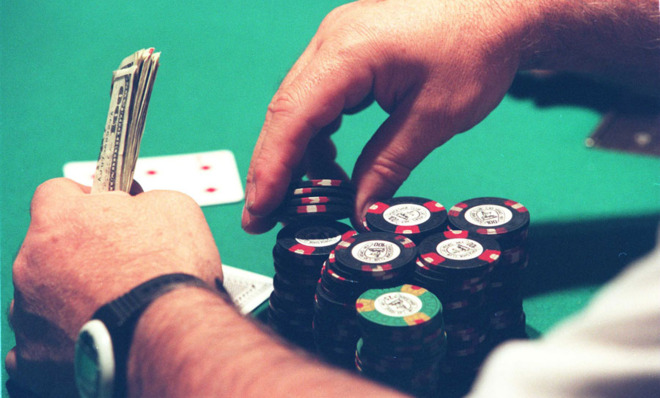The personality types of successful poker players, according to science
"Never let them see you sweat" is more than a cliche

A free daily email with the biggest news stories of the day – and the best features from TheWeek.com
You are now subscribed
Your newsletter sign-up was successful

Sure, you've got to know when to hold 'em, and know when to fold 'em.
But more importantly, you need to have the emotional temperament to follow through on that strategy, even when the stakes are high and the pressure is on.
That's the conclusion of a newly published study that examines the personality types of successful poker players. Confirming the cliché, it finds such people tend to be cool, calm, and difficult to rattle.
The Week
Escape your echo chamber. Get the facts behind the news, plus analysis from multiple perspectives.

Sign up for The Week's Free Newsletters
From our morning news briefing to a weekly Good News Newsletter, get the best of The Week delivered directly to your inbox.
From our morning news briefing to a weekly Good News Newsletter, get the best of The Week delivered directly to your inbox.
Writing in the journal Cyberpsychology, Behavior and Social Networking, a research team led by the University of Helsinki's Michael Laakasuo suggests such steadiness is a prerequisite for developing expertise in the popular card game.
"Higher emotional stability predisposes poker players to continue playing poker," it writes, "whereby they are likely to accumulate poker experience and skill."
Laakasuo and his colleagues conducted an online survey, in English, featuring 478 poker players. Participants filled out a detailed survey designed to assess their personality using the HEXACO model, which measures honesty/humility, emotionality, extroversion, agreeableness, conscientiousness, and openness to experience.
The "emotionality" trait, which is labeled "neuroticism" in another well-known personality index, reflects one's "tendency to experience fear, anxiety, and need of assurance." The researchers note that it, and indeed all personality traits, "are known to be, to a large extent, stable over time," meaning that it is unlikely they would be impacted by accumulating poker experience.
A free daily email with the biggest news stories of the day – and the best features from TheWeek.com
Participants were also asked how long they have been player poker; the level of stakes they typically play at; the approximate number of hands they have played in their lifetimes; and whether they consider themselves a professional poker player.
The results suggest veteran players are, by nature, cool customers. "A predisposition for emotional stability — that is, lower scores on emotionality — is linked to high levels of poker experience," the researchers report.
"The effect of emotional stability was most strongly associated with the levels of stakes at which the participant typically played poker," Laakasuo and his colleagues add. "This indicates that experienced poker players may have an innate disposition to tolerate mental and emotional pressure, and keep calm while making decisions involving large sums of money."
While this held true across the board, the researchers also found personality differences between people who play online, as opposed sitting around a table with fellow players. In-person players tended to score high on extroversion and openness to experience.
"Extroverts seek excitement, activity, and novel experiences," the researchers note, "and these are probably more often found in live poker rather than in online poker."
So, if the idea of playing poker for a career sounds tantalizing to you, you need to take an honest look at yourself. If you can analyze the pros and cons of such a move from a detached perspective, and be pretty sure you won't get caught up in the thrills and agony of wins and losses, you might want to cut a deck of cards and get to work.
Pacific Standard grapples with the nation's biggest issues by illuminating why we do what we do. For more on the science of society, sign up for its weekly email update or subscribe to its bimonthly print magazine.
More from Pacific Standard...
-
 How the FCC’s ‘equal time’ rule works
How the FCC’s ‘equal time’ rule worksIn the Spotlight The law is at the heart of the Colbert-CBS conflict
-
 What is the endgame in the DHS shutdown?
What is the endgame in the DHS shutdown?Today’s Big Question Democrats want to rein in ICE’s immigration crackdown
-
 ‘Poor time management isn’t just an inconvenience’
‘Poor time management isn’t just an inconvenience’Instant Opinion Opinion, comment and editorials of the day